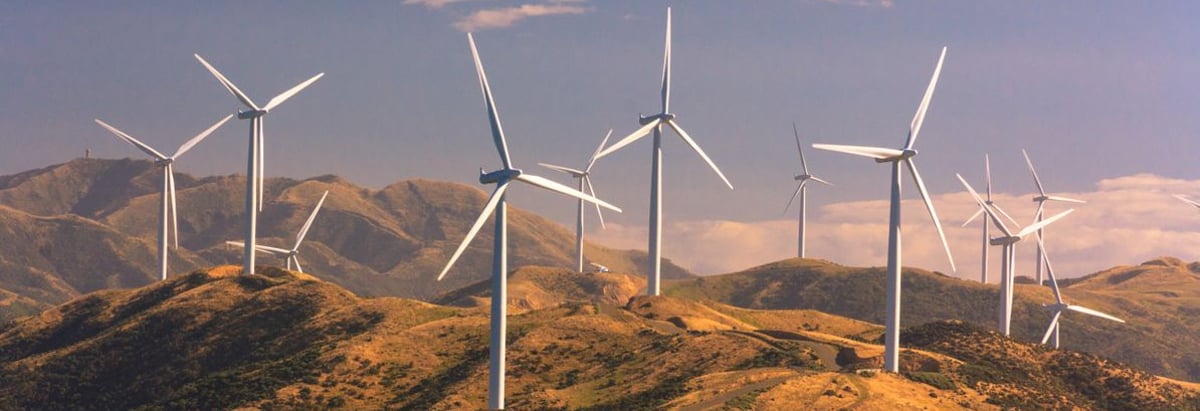Stock Analysis
- Hong Kong
- /
- Renewable Energy
- /
- SEHK:1281
Returns On Capital At Xinda Investment Holdings (HKG:1281) Paint A Concerning Picture

What financial metrics can indicate to us that a company is maturing or even in decline? Businesses in decline often have two underlying trends, firstly, a declining return on capital employed (ROCE) and a declining base of capital employed. Basically the company is earning less on its investments and it is also reducing its total assets. And from a first read, things don't look too good at Xinda Investment Holdings (HKG:1281), so let's see why.
What Is Return On Capital Employed (ROCE)?
For those who don't know, ROCE is a measure of a company's yearly pre-tax profit (its return), relative to the capital employed in the business. To calculate this metric for Xinda Investment Holdings, this is the formula:
Return on Capital Employed = Earnings Before Interest and Tax (EBIT) ÷ (Total Assets - Current Liabilities)
0.0065 = CN¥6.8m ÷ (CN¥1.1b - CN¥103m) (Based on the trailing twelve months to December 2023).
So, Xinda Investment Holdings has an ROCE of 0.7%. Ultimately, that's a low return and it under-performs the Renewable Energy industry average of 6.7%.
See our latest analysis for Xinda Investment Holdings
While the past is not representative of the future, it can be helpful to know how a company has performed historically, which is why we have this chart above. If you'd like to look at how Xinda Investment Holdings has performed in the past in other metrics, you can view this free graph of Xinda Investment Holdings' past earnings, revenue and cash flow.
What The Trend Of ROCE Can Tell Us
The trend of returns that Xinda Investment Holdings is generating are raising some concerns. The company used to generate 5.9% on its capital five years ago but it has since fallen noticeably. What's equally concerning is that the amount of capital deployed in the business has shrunk by 49% over that same period. The combination of lower ROCE and less capital employed can indicate that a business is likely to be facing some competitive headwinds or seeing an erosion to its moat. Typically businesses that exhibit these characteristics aren't the ones that tend to multiply over the long term, because statistically speaking, they've already gone through the growth phase of their life cycle.
The Bottom Line
In short, lower returns and decreasing amounts capital employed in the business doesn't fill us with confidence. Unsurprisingly then, the stock has dived 89% over the last five years, so investors are recognizing these changes and don't like the company's prospects. That being the case, unless the underlying trends revert to a more positive trajectory, we'd consider looking elsewhere.
Xinda Investment Holdings does have some risks, we noticed 2 warning signs (and 1 which is a bit concerning) we think you should know about.
For those who like to invest in solid companies, check out this free list of companies with solid balance sheets and high returns on equity.
New: AI Stock Screener & Alerts
Our new AI Stock Screener scans the market every day to uncover opportunities.
• Dividend Powerhouses (3%+ Yield)
• Undervalued Small Caps with Insider Buying
• High growth Tech and AI Companies
Or build your own from over 50 metrics.
Have feedback on this article? Concerned about the content? Get in touch with us directly. Alternatively, email editorial-team (at) simplywallst.com.
This article by Simply Wall St is general in nature. We provide commentary based on historical data and analyst forecasts only using an unbiased methodology and our articles are not intended to be financial advice. It does not constitute a recommendation to buy or sell any stock, and does not take account of your objectives, or your financial situation. We aim to bring you long-term focused analysis driven by fundamental data. Note that our analysis may not factor in the latest price-sensitive company announcements or qualitative material. Simply Wall St has no position in any stocks mentioned.
About SEHK:1281
Xinda Investment Holdings
Engages in the smart energy and public infrastructure construction businesses in the People’s Republic of China.


